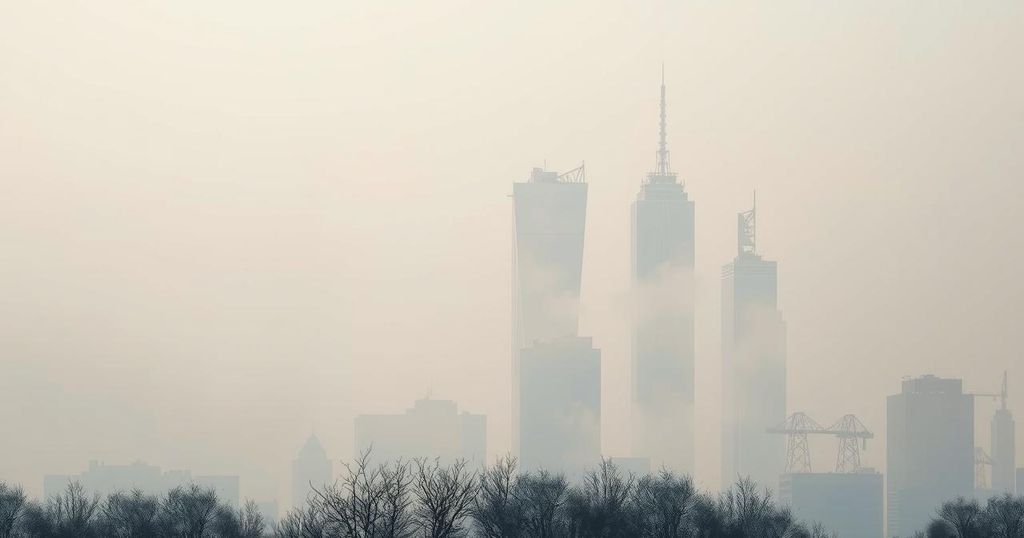Only seven countries met WHO air quality standards last year, with Chad and Bangladesh noted as the most polluted. The U.S. closure of its air quality monitoring initiative raises concerns for developing nations. India ranked fifth in pollution levels, while climate change exacerbates the situation. Experts warn of the implications for global air quality efforts.
Recent data indicates that only seven countries met the World Health Organization (WHO) air quality standards in the previous year. The report, released by Swiss air quality monitoring firm IQAir, highlights that Chad and Bangladesh ranked as the world’s most polluted nations in 2024, with smog levels exceeding WHO guidelines by over 15 times. The seven countries that achieved the appropriate air quality were Australia, New Zealand, the Bahamas, Barbados, Grenada, Estonia, and Iceland.
The discontinuation of global air quality monitoring efforts by the United States has raised concerns regarding the availability of accurate pollution data, particularly for developing countries dependent on U.S. embassy sensors. Christi Chester-Schroeder, IQAir’s air quality science manager, noted that the cessation of this monitoring program would significantly impact African nations as these sensors often provided their only real-time air quality data.
Chad, despite being ranked as the most polluted country in 2022, was excluded from the IQAir 2023 list due to data gaps. This country suffers from severe air quality issues exacerbated by Sahara dust and agricultural burning, with the PM2.5 concentrations hitting an alarming 91.8 micrograms per cubic meter last year—far exceeding the WHO recommendation of 5 mg/cu m.
India ranked fifth among the most polluted nations, following Chad, Bangladesh, Pakistan, and the Democratic Republic of Congo. Its average PM2.5 levels decreased by 7% to 50.6 mg/cu m, yet it still housed 12 of the top 20 most polluted cities, with Byrnihat recording the highest level at 128 mg/cu m. Experts indicate that climate change is accelerating pollution, with rising temperatures contributing to more severe and extended forest fires globally.
Christa Hasenkopf, a director at the University of Chicago’s Energy Policy Institute, warns that approximately 34 countries will face the loss of reliable pollution data due to the closure of U.S. monitoring programs, which had previously improved air quality in monitored locales. Hasenkopf emphasized that the program benefitted cities where sensors were deployed, leading to improved life expectancy and reduced hazard allowances for U.S. diplomats, underscoring its value in global air quality initiatives.
The recent report underscores a grave air quality crisis, particularly in Chad and Bangladesh, where pollution levels are dramatically high. The U.S. discontinuation of its monitoring program further complicates efforts to combat air pollution in developing nations, with significant implications for public health and safety. As climate change worsens these conditions, the need for comprehensive pollution monitoring and standards becomes increasingly urgent.
Original Source: www.firstpost.com




